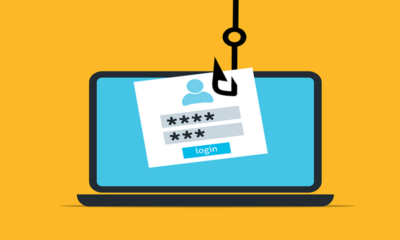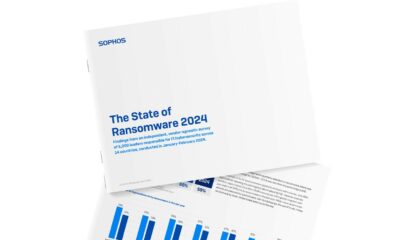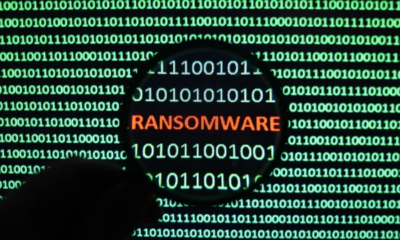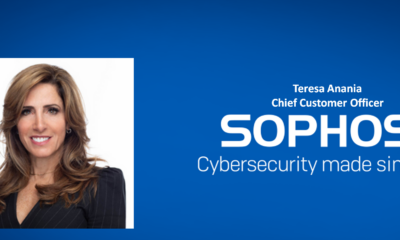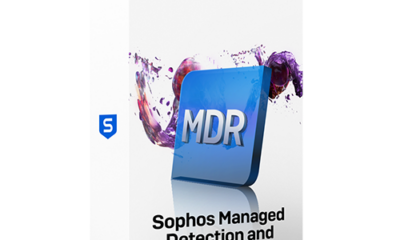TechNews
Sophos Show How Attackers Exploit Stolen Session Cookies to Bypass Multi Factor Authentication
With Stolen Session Cookies, Attackers can Impersonate Legitimate Users and Move Freely Around the Network, says Sophos


Sophos, a global leader in next-generation cybersecurity, today announced in the Sophos X-Ops report, “Cookie stealing: the new perimeter bypass,” that active adversaries are increasingly exploiting stolen session cookies to bypass Multi-Factor Authentication (MFA) and gain access to corporate resources.
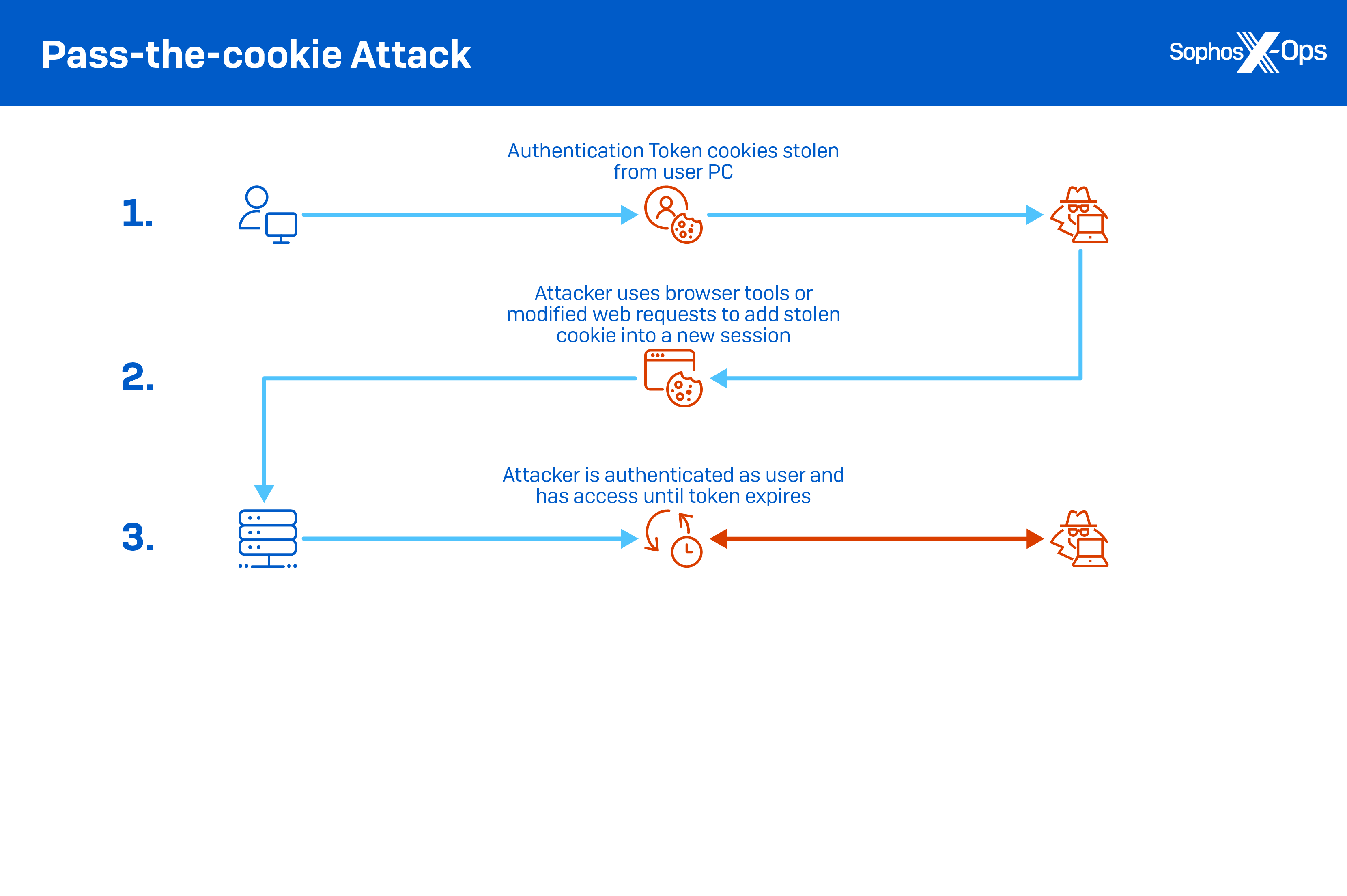

Key points:
- Sophos is seeing a growing number of attackers—including active adversaries—using stolen session, or authentication, cookies to bypass MFA and access corporate resources
- These stolen cookies allow attackers to impersonate legitimate users and move freely around a network. Once inside, there is really no limit to what they can do; they can tamper with cloud infrastructures, compromise business email, or even rewrite code for products
- While bulk credential theft (including bulk cookie theft) is still common, Sophos is witnessing a growing number of targeted attacks to steal cookies from specific types of organizations
- One common underground marketplace for these stolen cookies is Genesis
- This is an important table setter piece for Sophos:
- While other companies have discussed the theoretical rise of attacks bypassing MFA or spoken about isolated incidents involving stolen session cookies, we’re talking about an overall trend and what we’ve witnessed in the field and in the data from our own telemetry
- We will be building on the cookie theft/MFA bypass angle in the coming months
In some cases, the cookie theft itself is a highly targeted attack, with adversaries scraping cookie data from compromised systems within a network and using legitimate executable to disguise the malicious activity.
Once the attackers obtain access to corporate web-based and cloud resources using the cookies, they can use them for further exploitation such as business email compromise, social engineering to gain additional system access, and even modification of data or source code repositories.
“Over the past year, we’ve seen attackers increasingly turn to cookie theft to work around the growing adoption of MFA. Attackers are turning to new and improved versions of information stealing malware like Raccoon Stealer to simplify the process of obtaining authentication cookies, also known as access tokens,” said Sean Gallagher, principal threat researcher, Sophos. “If attackers have session cookies, they can move freely around a network, impersonating legitimate users.”
Session, or authentication, cookies are a particular type of cookie stored by a web browser when a user logs into web resources. If attackers obtain them, then they can conduct a “pass-the-cookie” attack whereby they inject the access token into a new web session, tricking the browser into believing it is the authenticated user and nullifying the need for authentication.
Since a token is also created and stored on a web browser when using MFA, this same attack can be used to bypass this additional layer of authentication.
Compounding the issue is that many legitimate web-based applications have long-lasting cookies that rarely or never expire; other cookies only expire if the user specifically logs out of the service.
Thanks to the malware-as-a-service industry, it’s getting easier for entry-level attackers to get involved in credential theft. For example, all they need to do is buy a copy of an information-stealing Trojan like Raccoon Stealer to collect data like passwords and cookies in bulk and then sell them on criminal marketplaces, including Genesis.
Other criminals on the attack chain, such as ransomware operators, can then buy this data and sift through it to leverage anything they deem useful for their attacks.
Conversely, in two of the recent incidents that Sophos investigated, attackers took a more targeted approach. In one case, the attackers spent months inside a target’s network gathering cookies from the Microsoft Edge browser.
The initial compromise occurred via an exploit kit, and then the attackers used a combination of Cobalt Strike and Meterpreter activity to abuse a legitimate compiler tool to scrape access tokens. In another case, the attackers used a legitimate Microsoft Visual Studio component to drop a malicious payload that scraped cookie files for a week.
“While historically we’ve seen bulk cookie theft, attackers are now taking a targeted and precise approach to cookie stealing. Because so much of the workplace has become web-based, there really is no end to the types of malicious activity attackers can carry out with stolen session cookies. They can tamper with cloud infrastructures, compromise business email, and convince other employees to download malware or even rewrite code for products. The only limitation is their own creativity,” said Gallagher. “Complicating matters is that there is no easy fix. For example, services can shorten the lifespan of cookies, but that means users must re-authenticate more often, and, as attackers turn to legitimate applications to scrape cookies, companies need to combine malware detection with behavioral analysis.”
To learn more about session cookie theft and how adversaries are exploiting the technique to carry out malicious activity, read the full report, “Cookie Stealing: the new perimeter bypass,” on Sophos.com.
TechNews
NITDA DG Inaugurates National Technical Working Group on Cloud Infrastructure
REPORTER: Sandra Ani


In a significant move to bolster Nigeria’s digital infrastructure, the National Information Technology Development Agency (NITDA) has inaugurated the Technical Working Group (TWG) on National Cloud Infrastructure.
This initiative aims to enhance local cloud capabilities, attract hyper-scale investments, and position Nigeria as a leading technology hub in Africa.
Speaking at the inauguration, NITDA’s Director-General, Kashifu Inuwa, CCIE, emphasised the need for accurate data and regulatory frameworks to support these initiatives, necessary for Nigeria to control its digital infrastructure, data, and technological future noting that,
“Without this foundation, we cannot achieve true digital sovereignty. Our goal is to build an ecosystem where both local data centre providers can scale, and global hyper-scalers see Nigeria as a viable investment destination.”
While identifying lack of accurate data on Nigeria’s IT infrastructure as significant challenge, Inuwa noted that while Africa comprises nearly 19% of the world’s population, it hosts less than 1% of global data centres.
“This disparity, coupled with limited insights into Nigeria’s existing IT capacity, hampers investment efforts and without clear data on our infrastructure, attracting investment becomes challenging,” he said.
The NITDA boss maintained that, to address this, NITDA commissioned comprehensive research to assess Nigeria’s digital landscape which findings have highlighted the need for improved regulatory frameworks, clearer investment incentives, and stronger public-private collaboration. He added that subsequently upon this, NITDA has engaged global consultants to redefine strategies for cloud development.
As the TWG embarks on its mission, NITDA urges industry experts, policymakers, and stakeholders to contribute their expertise and resources. “With collective effort, Nigeria can emerge as the premier digital hub for West and Central Africa,” Inuwa concluded.
While corroborating the Director General’s point of views, Acting Director of Regulation and Compliance, Barrister Emmanuel Edet, underscored the importance of regulatory intervention in fostering a robust digital economy.
“Our objective is to establish policies and legal frameworks that support cloud development, enabling us to securely host and manage our data. This is crucial for the growth of our digital economy, he said.”
He also highlights the necessity of capacity building, stating that, “Equipping ourselves with top-tier training and expertise is essential to fully leverage digital technologies.” Barrister Edet called on all stakeholders to actively participate in shaping Nigeria’s digital future.
“Collaboratively, we must develop a framework that reflects our national interests, and it should be widely accepted. This effort will define Nigeria’s role in the global digital arena, he observed.
The TWG will help in the drive to attract hyperscale investments and enhance local cloud capabilities by proffering measures to encourage the use of accurate data, recommend the enactment and compliance to enabling policies.
Members of the TWG which includes Google, AWS, IBM, Oracle, Microsoft, HUAWEI Cloud, Equinix, Kasi, Rack Centre, Africa Data Centres, several other data centre operators and the Nigeria Data Protection Commission expressed support and readiness to volunteer and contribute resources.
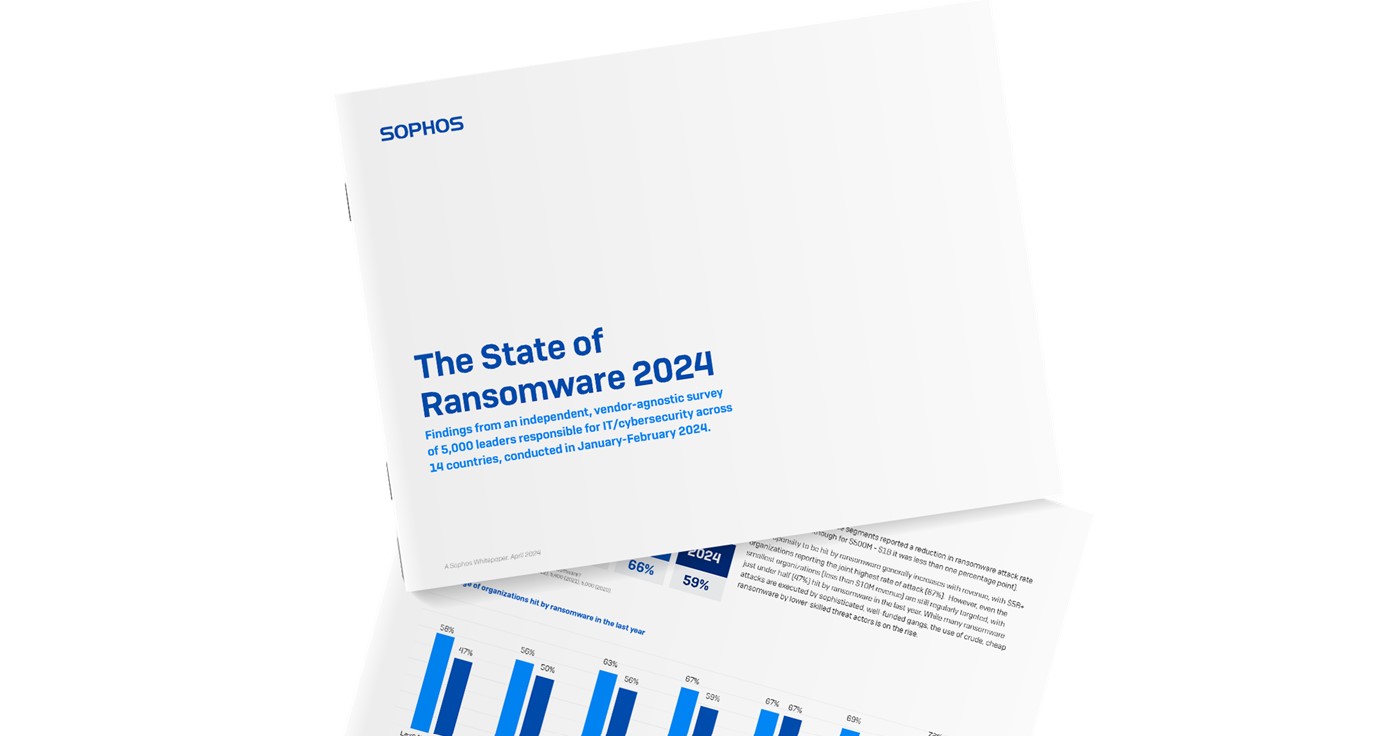

…Nearly 80% of Organizations Hit by Ransomware Took More than a Week to Recover
Sophos, a global leader of innovative security solutions for defeating cyberattacks, today released a sector survey report, “The State of Ransomware in Healthcare 2024,” which revealed that the rate of ransomware attacks against healthcare organizations has reached a four-year high since 2021.
Of those organizations surveyed, two-thirds (67%) were impacted by ransomware attacks in the past year, up from 60% in 2023.
The rising rate of ransomware attacks against healthcare institutions contrasts with the declining rate of ransomware attacks across sectors; the overall rate of ransomware attacks fell from 66% in 2023 to 59% in 2024.
Alongside an increase in the rate of ransomware attacks, the healthcare sector reported increasingly longer recovery times.
Only 22% of ransomware victims fully recovered in a week or less, a considerable drop from the 47% reported in 2023 and 54% in 2022.
In addition, 37% took more than a month to recover, up from 28% in 2023, reflecting the increased severity and complexity of attacks.
“While we’ve seen the rate of ransomware attacks reach a kind of “homeostasis” or even decline across industries, attacks against healthcare organizations continue to intensify, both in number and scope. The highly sensitive nature of healthcare information and need for accessibility will always place a bullseye on the healthcare industry from cybercriminals. Unfortunately, cybercriminals have learned that few healthcare organizations are prepared to respond to these attacks, demonstrated by increasingly longer recovery times. These attacks can have immense ripple effects, as we’ve seen this year with major ransomware attacks impacting the healthcare industry and impacting patient care,” said John Shier, field CTO, Sophos.
“To combat these determined adversaries, healthcare organizations must adopt a more proactive, human-led approach to threat detection and response, combining advanced technology with continuous monitoring to stay ahead of attackers.”
Additional findings from the report include:
· Ransom Recovery Costs Surge: The mean cost of recovery in a healthcare ransomware attack was $2.57 million in 2024, up from $2.2 million in 2023 and double the 2021 cost
· Ransom Demands vs Payments: 57% of healthcare institutions that paid the ransom ended up paying more than the original demand
· Root Cause of Attack: Compromised credentials and exploited vulnerabilities were tied for the number one root cause of attack, each accounting for 34% of attacks
· Backups Targeted: 95% of healthcare organizations hit by ransomware in the past year said that cybercriminals attempted to compromise their backups during the attack.
· Increased Pressure: Organizations whose backups were compromised were more than twice as likely to pay the ransom to recover encrypted data (63% vs. 27%)
· Who Pays the Ransom: Insurance providers are heavily involved in ransom payments, contributing in 77% of cases. 19% of total ransom payment funding comes from insurance providers
The latest Sophos report on real-world ransomware experiences explores the full victim journey, from attack rate and root cause to operational impact and business outcomes, of 402 healthcare organizations.
The results for this sector survey report are part of a broader, vendor-agnostic survey of 5,000 cybersecurity/IT leaders conducted between January and February 2024 across 14 countries and 15 industry sectors.


Boxes have a multitude of uses, and the word “box”, lends itself to diverse contexts. For “Ajala Travelers,” the box is a necessity for keeping goods for their endless journeys. In literature, idiomatically, it can be said that “one has been boxed into a corner;” another might say to deal with a conundrum: “think outside the box;” then there is the “Pandora’s box” that no one wants opened.
To “box one’s ear’s” refers to a hit on the head, especially around one’s ears. For those who celebrate Christmas, “Boxing Day,” which is the 26th of December, the second day of Christmastide is not to be joked with: A day to unbox gifts. So much for the box.
Another type of boxes exists in the telecommunications world: The SIM Box. Have you ever received an international call but saw a local phone number ring in? That is SIM Boxing in action. Let me explain.
SIM boxing happens when a person uses a special equipment, what is called a SIM Box containing tens to hundreds of SIM Cards—from 32, to 96, to 512 and more SIMs —to terminate international calls by bringing in the international call into the SIM Box using internet connections and regenerating the calls to the called party from one of the hundred SIMs in the box.
This way, the called party will see the local number of the SIM from the SIM Box, and not the original international number calling.
With SIM Boxes, the syndicate charges international call carriers lower rates than what regular Nigerian telecommunications operators would charge, as they do not have to pay the full cost of maintaining and operating a phone network.
Basically, they are bypassing the normal route for international phone call termination to terminate international calls cheaply and making windfall profits off it.
Take for instance, a telecommunications operator in Nigeria would ordinarily charge international carriers 10cents per minute for terminating an international call in Nigeria. However, by routing the call through a SIM Boxing syndicate, the international telecommunications carrier only pays a fraction of the charge to the syndicate, say 5cents per minute and does not have to pay the full 10cents per minute charge.
The SIM Boxer will terminate this call to the called subscriber at a rate of, say N15 per minute using one of the SIM cards in their SIM Box. The SIM Boxer thus makes a killing from the differential between the rate charged to the international carrier and the rate paid to telecommunications operators whose SIM they utilise in their SIM Boxes, at the expense of our national security and income of mobile network operators and quality of our service to consumers.
Asides the revenue loss that local mobile network operators suffer courtesy the activities of these syndicates, networks face congestion around areas where the illegal call routings via SIM Boxing occurs. With the huge traffic from the boxes, callers around the area see more dropped calls, poor call quality, and slower data speeds.
The introduction of the linking of National Identity Numbers (NIN) to SIMs is one way the Federal Government has worked to tackle this criminal enterprise. With every SIM in the country being linked to an NIN, an identity is tied to the owner of each line, and regulators now have visibility of ownership. That is not all. There is also the “Max-4 Rule” where a subscriber is not allowed to have more than four lines per network operator linked to his NIN. With this rule in place, coupled with the NIN-SIM Linkage, every telephone subscriber in Nigeria would not just be accurately identifiable but limited to having only four telephone lines per subscriber.
To enforce this rule, the Nigerian Communications Commission (NCC) on the 29th of March 2024 announced the deadline for Mobile Network Operators to bar all subscribers who had five lines and above, and whose NIN failed the verification test of biometrics matching.
Over the last few weeks, sources within the NCC have confirmed cases where a single NIN was linked to over 100,000 lines.
Some NINs had well over 10,000 SIMS linked to them, others over a thousand, others had hundreds. Many have questioned the reports and asked, what would any single reasonable person be doing with these number of lines? Justifiable questions, because no sane person—who is not running a business—should own more than five SIM cards.
Given the ‘Max 4 Rule’ in place and the NIN-SIM Linkage Policy, SIM Boxers have been boxed into a corner.
The applications they use require tens to thousands of SIM Cards, and the imperative to stay anonymous. If these policies are well and fully implemented, this is the death knell for SIM Boxing merchants.
But the regulator, NCC needs to be fast and ready for the battle ahead. SIM Boxing is a billion-dollar criminal enterprise. They are not going to go down without a fight. It is like taking a bone being chewed from the mouth of a bulldog.
Already, the battle seems to have kicked off. A lawyer, Barrister Olukoya Ogunbeje has recently taken the Federal Government, NCC and Mobile Network Operators to court, claiming that the barring of SIMs not linked to NINs goes against his fundamental human rights, and has cost him the loss of business opportunities.
Anyone who has Nigeria’s interest at heart ordinarily supports this policy. It then does not add up seeing a so-called activist lawyer take up such a matter that is clearly against the public interest—unless this is the Haka cry of SIM Boxers.
A most interesting observation with his case is that it is not even a class action, but individually driven. It begs the question then, who is funding Barr. Olukoya Ogungbeje? What is his interest in fighting this policy that puts paid to the business of a criminal enterprise? Is he funded by interests in the SIM Boxing world? Time would tell. But in the meantime, NCC must go head on without fear or intimation and clean the Augean stable of SIM ownership in Nigeria.
Suleiman Bala Bakori is a researcher, and writes from the FCT.

